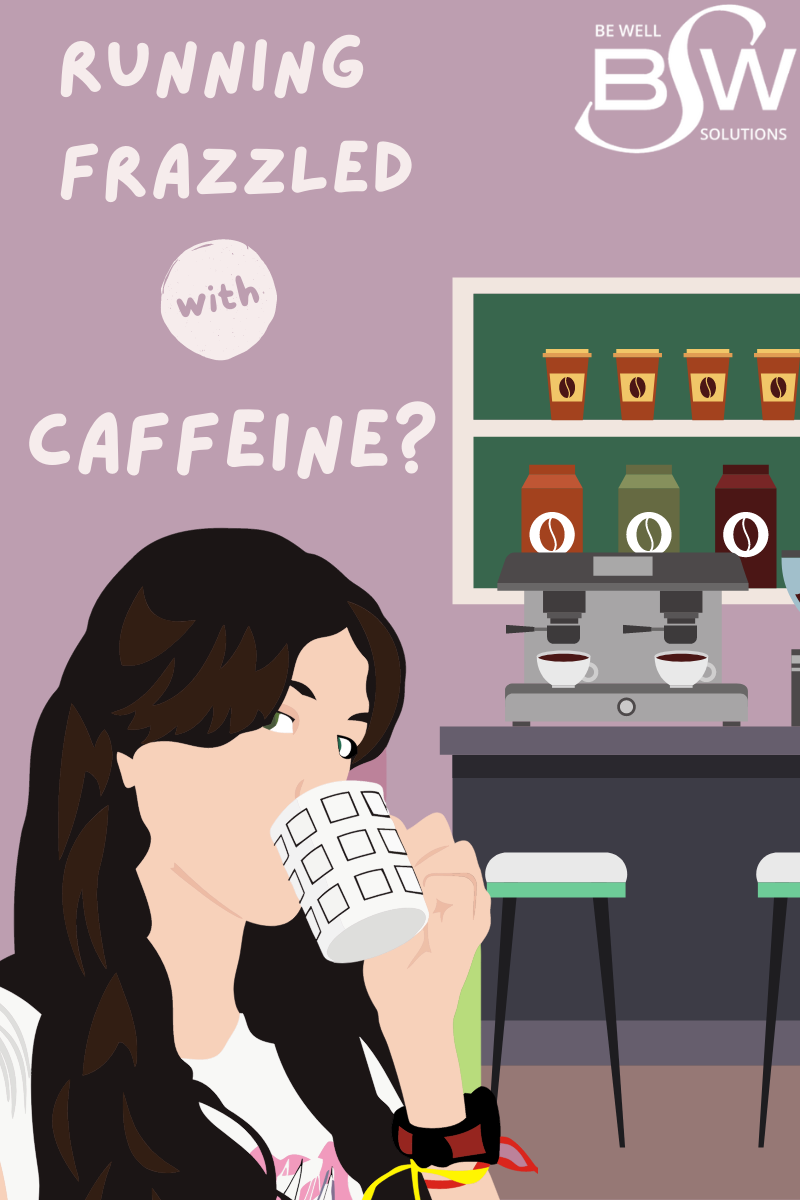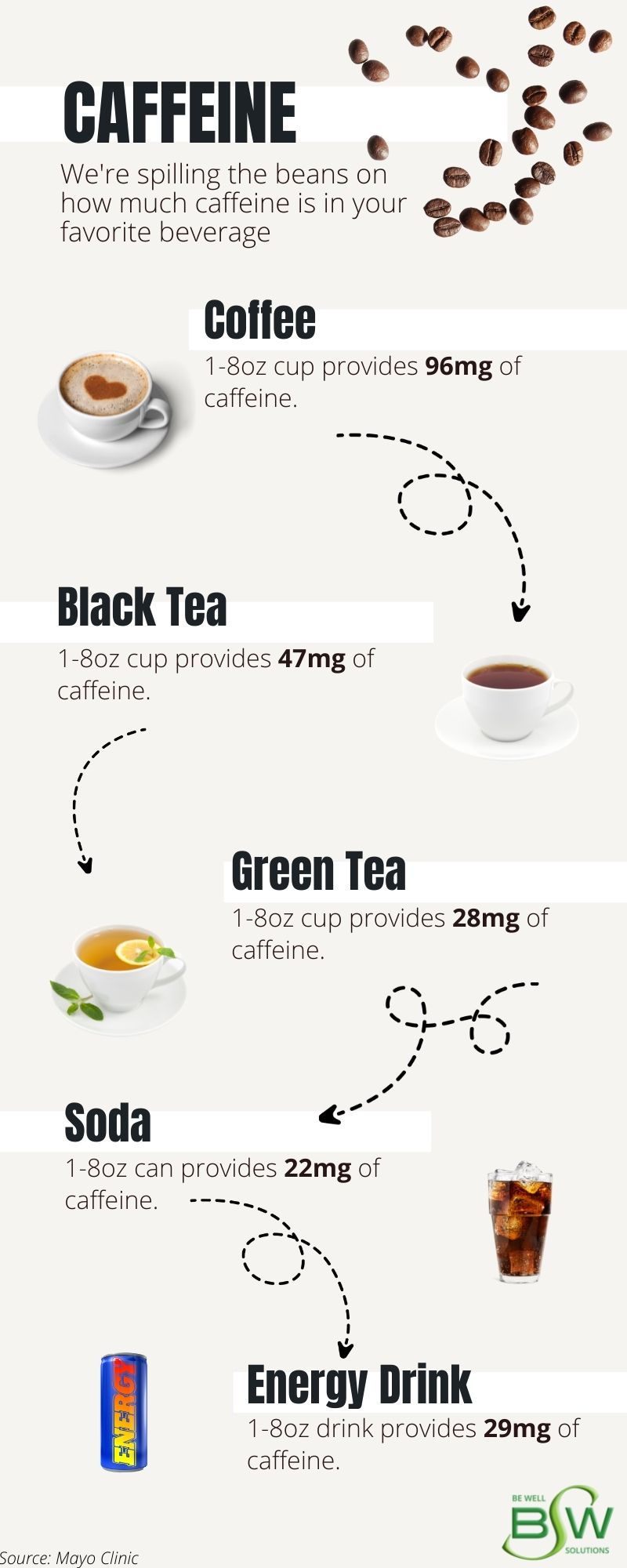
“Whenever I get to a new city, the first thing I do is to scope out the nearest Starbucks”, a woman told me the other day while on vacation hauling her familiar cup, sleeve and lid. “There’s nothing like this coffee” she continued. And she was right. In terms of caffeine content, Starbucks trumps other coffees hands down. A typical 16 oz. cup of regular coffee contains between 100 and 200 mg of caffeine and a regular strength “No-Doz” tablet has 100 mg. Starbucks contains 330 mg.
Energy and productivity are essential for a healthy, meaningful life. People have used simple stimulants like caffeine for centuries. Everyday more and more people look for ways to improve their mental and physical focus. Many people turn to coffee for a liquid energy boost but there are newer preparations on the market. Energy drinks and shots usually include caffeine, additional stimulants, often large amounts of sugar, and other chemicals. Just like any beverage or drug, energy drinks have risks, and these risks are multiplied in people who have existing medical problems.
“Since it [caffeine] improves alertness, reaction time, and mood, people associate the perceived beneficial effects with the particular drink and are more likely to buy it again”, explains Griffiths. Experts refer to this as “drug-reinforcement”. The American Medical Association and the Center for Science in the Public Interest have petitioned the FDA for about a decade to require that manufacturers list the amount of caffeine added to their foods. “[Caffeine is] a drug and it leads to physical dependence” says caffeine expert Roland Griffiths. Nearly 8 out of 10 people worldwide use caffeine daily, making it the most used drug on the planet. Over 250 million Americans have it daily.
The world likes caffeine. Caffeine improves alertness and reaction time. The mental effects of caffeine are usually noticed about 20 to 30 minutes after it’s consumed. Doses of 20-200 mg also provide short term improvement in mood, a sense of well-being, more energy and increase social interaction. At doses higher than 200-300 mg some people begin to feel some unpleasant effects, such as anxiety, irritability, nervousness, jitteriness, and an upset stomach.
So, is caffeine safe?
The good news is caffeine, taken in normal doses, appears very safe. The American Medical Association tells us that “moderate tea or coffee drinkers probably need have no concern for their health relative to their caffeine consumption, provided other lifestyle habits are [healthy] as well.” The FDA also classifies caffeine as “safe in appropriate doses”.
What is “moderate” consumption of caffeine?
Per the Mayo Clinic: Up to 400 milligrams (mg) of caffeine a day appears to be safe for most healthy adults. That’s roughly the amount of caffeine in four cups of brewed coffee, 10 cans of cola or two “energy shot” drinks. Keep in mind that the actual caffeine content in beverages varies widely, especially among energy drinks.

Caffeine and Other Health Conditions:
Parkinson’s Disease — studies indicate that drinkers of caffeinated coffee had a lower risk of developing Parkinson’s Disease.
Headaches — caffeine helps improve some headaches. That’s why many medications include caffeine as an ingredient.
Physical Performance — studies show caffeine improves endurance, probably by increasing the pain threshold, and helps the body burn fat rather than carbohydrates. However, caution should be used since caffeine also temporarily increases heart rate and blood pressure.
Counteracting Alcohol — it appears trying to sober up with caffeine does not improve judgment and reaction time. Recently people have begun to combine alcohol and energy drinks — bad idea. This increases the risk of alcohol-related accidents significantly.
Migraines — it appears that caffeine may make chronic migraine headaches more frequent. If you have migraine headaches, discuss the use or avoidance of caffeine with your doctor.
Heart Disease — recent research states there is no relationship between caffeine intake and heart disease.
High Blood Pressure — although regular caffeine use may cause a temporary rise in blood pressure, the effect seems to disappear with continued use.
Continue reading August 2021 Newsletter: How to Meal Prep Healthy Lunches
